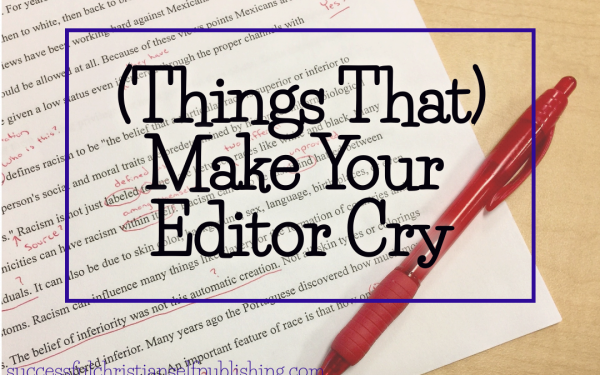Make Your Editor Cry: Began vs. Begun

Does the English language really need both “began” and “begun”? Wouldn’t it be simpler to just have one past tense version of “begin”? Alas, nobody said English grammar is easy. Okay. What is exactly the difference between “began” and “begun”?
Began (Simple Past Tense)
The verb “begin” means “start.” But whether to use “began” or “begun” for something that has already started depends on how you phrase the sentence. “Began” is the simple past tense of “begin” and used when describing an action or process that started in the past, but that has now completed.
Example:
The Second Boer War began in 1899 and ended in 1902.
You can also use “began” for an ongoing action or event.
Example:
The day began well and has gotten better since!
Remember that “began” is most often used for past events that have come to an end.
Begun (Past Participle)
“Begun” is a past participle, which means it is used in the present perfect tense. This allows us to talk about something which started in the past, but which continues into the present and has not yet completed or ended.
Example:
The lecture had begun only minutes ago, but it felt like hours had passed.
An important factor here is that, like all past participles, “begun” is always used with a helper verb (e.g., “has,” “had” or “have”). Usually, if a sentence has some variation of “have” in it, the correct term to use will be “begun.” You can see the difference between “began” and “have begun” if we use both in a similar situation.
Example:
Past Tense: I began to write my novel.
Present Perfect Tense: I have begun to write my novel.
The first sentence leaves the current status of the novel uncertain (it could be finished, abandoned, or still in progress). The use of “begun” in the second sentence, on the other hand, signals that the book is still being written.
Began or Begun?
There are two things to consider when choosing “began” or “begun.” First, consider whether your sentence contains a helper verb (like a variation of “have”), since this usually means you need “begun.” Second, consider whether what you are describing has already ended. If so, you will usually need to use “began.”
Examples:
It all began one day about ten years ago.
Dinner began at seven o’clock and it is now almost nine and they will not leave!
The snow began falling early in the evening last night and had accumulated to over two feet by early this morning.
You can’t stop the process now. It has already begun.
By the time the racer realized he had forgotten his shoes, the race had begun.
Have you begun your homework yet?

Gregg Bridgeman is the Editor-in-Chief at Olivia Kimbrell Press. He is husband to best-selling Christian author Hallee Bridgeman and parent to three. He continues to proudly serve in the US Armed Forces and has done so in either an active or reserve capacity for more than twenty years as an airborne and air assault qualified paratrooper, earning a Bronze Star for his service. Most importantly, he was ordained in October of 2001 after surrendering his life to Christ decades earlier.

